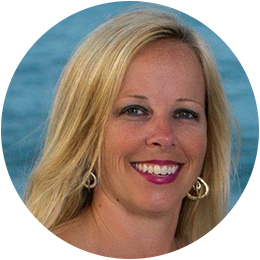
The Medical Staff profession has gone through a transformation in hiring practices since the start of the pandemic. This transformation accelerated the remote work structure some CVO’s and Health Systems had been practicing for a number of years to where all or most went into this work structure. This has proved, as it has in many industries, that it can and does work well for certain positions within the Medical Staff Services profession. Over the past year or so I have seen the advertisements for positions for Medical Staff Services Professionals include information regarding whether the position is remote, in person or hybrid in the first few sentences of the positions. A few years ago this would never have been at the top of the posting and shows the transformation for both employers and employees looking for positions.
 Paige Martin
Paige Martin
Director, Medical Staff Services
Sentara Healthcare
About Paige and Sentara...
I reached out to Paige to discuss how their hiring practices have changed since February 2020. Sentara is a 130 year old not-for-profit health system headquartered in Norfolk, VA. Today, they operate 12 hospitals in Virginia and North Carolina with more than 3,800 providers on the medical staff. Paige oversees the CVO and the Medical Staff Services at nine hospitals.
Before COVID, what were the employee satisfaction surveys like for your teams?
“As many organizations do, Sentara performs an annual employee satisfaction survey. Over several years the CVO and MSO’s results were satisfactory but always had some comments about allowing for working remotely. This was not the way for our departments in the past so year over year we saw the same comments.”
What was your work structure like at Sentara for your CVO and the MSOs prior to the pandemic and then as a result of the pandemic?
“As with many organizations before COVID, the CVO and MSO of Sentara were all in person. When COVID began, all team members in the CVO were required to work remotely. This occurred rapidly, as it did in many organizations. In the case of the CVO, staff members were in cubicles and were working too close together. Within the individual hospitals the CMOs and hospital presidents made individual decisions about whether the Medical Staff Coordinators were required to work remotely or in person.”
Have you changed how you advertise positions?
“We definitely indicate that the CVO positions are remote. Indicating that the positions are remote has helped us to hire people who are already comfortable with working remotely. We have a large competitor in our market. This company tends to hire a lot of people, train them and lay them off as business needs change. This company has allowed their team members to work remotely for several years, even before the pandemic. This created an advantage for them and a disadvantage for us when we were hiring before the pandemic. Now that we support working remotely for the CVO, this is no longer a disadvantage for us.”
What changes have you gone through with interviewing and onboarding practices since the initial pandemic?
“Before COVID, all CVO and MSO interviews were in person. Now, most if not all, interviewing is done remotely with both the applicant and interviewers’ camera on. Once hired, the new staff member may come in for a few hours of in person face to face meeting time, but the onboarding and training of new staff is primarily conducted remotely. We have found this to be much easier than it used to be when it was all in person. This is because the trainer and the trainee each have their own computer and screen so it’s easier for the trainee to follow along vs if someone was looking over their shoulder.”
Do you envision going back to the pre-pandemic hiring approaches?
“The CVO will definitely not be going back to old hiring practices. The Medical Staff Coordinators in the individual hospitals could be a different story depending on the location. A transition to remote or hybrid for the MSOs in the individual hospitals will take continued conversations related to when it makes sense to have an in-person presence versus remote. Some of the preliminary conversations have indicated there is not always an accurate understanding on what the responsibilities of the Medical Staff Coordinators is compared to work being done outside their core job duties."
Has your staff retention changed as a result of the pandemic?
“A resounding YES. We just received our employee satisfaction survey and the CVO results were the highest they have ever been! The team showed that working remotely can be successful and productive. One of the major reservations in having team members work remotely was that we were unsure of our ability to manage performance. We have managed performance just as well remotely as we did in person and team member job satisfaction has significantly increased.
I was able to show leadership using the performance data and additional information throughout the pandemic helped me to advocate that this department should remain remote going forward, specifically for the CVO.
We are very fortunate to have a very stable team now with little turnover. As an example, when we had an employee move to a new area, we were able to retain them in the department because we were able to offer a remote option.”
As a result of the employee satisfaction survey, Sentara’s CVO and Medical Staff Services Departments will be recognized within the system. Congratulations to Paige and her Medical Staff Services/CVO teams on this accomplishment!
Paige and the Sentara CVO and MSOs pivoted rapidly at the beginning of the pandemic to a new workstyle and hiring approaches. They have shown to their leadership and organization that remote work can be successful and benefit the organization and the employees. The pandemic has changed how we hire, who we market jobs to and what the expectations are for employees. The opportunities for individuals looking to fill positions and those looking for positions has expanded and will continue to grow and change.
